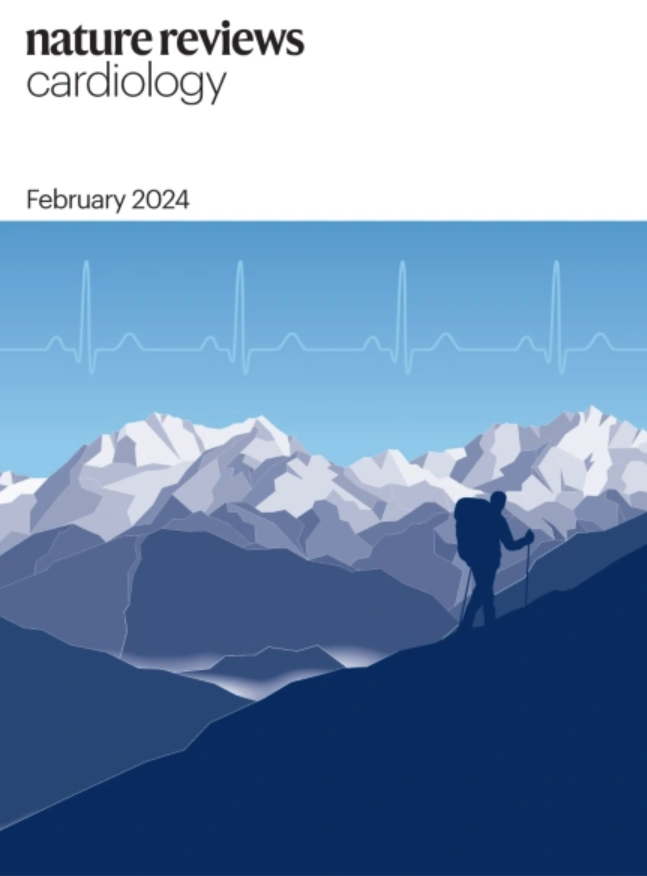心血管恢复力中的睡眠和昼夜节律:机制、含义和研究和干预的路线图。
IF 44.2
1区 医学
Q1 CARDIAC & CARDIOVASCULAR SYSTEMS
引用次数: 0
摘要
睡眠、昼夜节律和心血管恢复力之间的相互作用是一个至关重要但尚未得到充分探索的研究领域,具有重要的公共卫生意义。睡眠和昼夜节律紊乱会加剧高血压、糖尿病和肥胖症,这些疾病在全球越来越普遍,并增加患心血管疾病的风险。国家心脏、肺和血液研究所的一个研讨会研究了这些联系,以及心血管恢复力作为一个动态的、多方面的概念,跨越了个体生命周期的分子、细胞和系统水平。研讨会强调需要将重点从仅仅了解睡眠和昼夜节律紊乱是否以及如何导致疾病扩展到探索健康睡眠和一致的昼夜节律如何增加心血管恢复能力。为了制定实现这一目标的路线图,讲习班与会者确定了关键的知识差距和研究机会,包括需要将睡眠和昼夜健康中的生物、行为、环境和社会因素与心血管研究结合起来,以确定治疗靶点。拟议的干预措施包括行为疗法、时间疗法、生活方式改变、组织政策和公共卫生举措,旨在改善睡眠和昼夜健康,以改善心血管疾病的预后。未来的跨学科研究和将发现转化为公共卫生战略和临床实践,可以提高所有人群在整个生命周期中的心血管恢复能力。本文章由计算机程序翻译,如有差异,请以英文原文为准。
Sleep and circadian rhythms in cardiovascular resilience: mechanisms, implications, and a Roadmap for research and interventions.
The interaction between sleep, circadian rhythms and cardiovascular resilience is a crucial yet underexplored research area with important public health implications. Disruptions in sleep and circadian rhythms exacerbate hypertension, diabetes mellitus and obesity, conditions that are increasingly prevalent globally and increase the risk of cardiovascular disease. A National Heart, Lung, and Blood Institute workshop examined these connections, as well as the emerging concept of cardiovascular resilience as a dynamic and multifaceted concept spanning molecular, cellular and systemic levels across an individual's lifespan. The workshop emphasized the need to expand the focus from solely understanding whether and how sleep and circadian rhythm disturbances contribute to disease, to also exploring how healthy sleep and aligned circadian rhythms can increase cardiovascular resilience. To develop a Roadmap towards this goal, workshop participants identified key knowledge gaps and research opportunities, including the need to integrate biological, behavioural, environmental and societal factors in sleep and circadian health with cardiovascular research to identify therapeutic targets. Proposed interventions encompass behavioural therapies, chronotherapy, lifestyle changes, organizational policies and public health initiatives aimed at improving sleep and circadian health for better cardiovascular outcomes. Future cross-disciplinary research and translation of discoveries into public health strategies and clinical practices could improve cardiovascular resilience across the lifespan in all populations.
求助全文
通过发布文献求助,成功后即可免费获取论文全文。
去求助
来源期刊

Nature Reviews Cardiology
医学-心血管系统
CiteScore
53.10
自引率
0.60%
发文量
143
审稿时长
6-12 weeks
期刊介绍:
Nature Reviews Cardiology aims to be the go-to source for reviews and commentaries in the scientific and clinical communities it serves. Focused on providing authoritative and accessible articles enriched with clear figures and tables, the journal strives to offer unparalleled service to authors, referees, and readers, maximizing the usefulness and impact of each publication. It covers a broad range of content types, including Research Highlights, Comments, News & Views, Reviews, Consensus Statements, and Perspectives, catering to practising cardiologists and cardiovascular research scientists. Authored by renowned clinicians, academics, and researchers, the content targets readers in the biological and medical sciences, ensuring accessibility across various disciplines. In-depth Reviews offer up-to-date information, while Consensus Statements provide evidence-based recommendations. Perspectives and News & Views present topical discussions and opinions, and the Research Highlights section filters primary research from cardiovascular and general medical journals. As part of the Nature Reviews portfolio, Nature Reviews Cardiology maintains high standards and a wide reach.
 求助内容:
求助内容: 应助结果提醒方式:
应助结果提醒方式:


